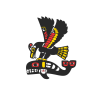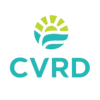POLIS Water Sustainability Project Fall 2014 Newsletter
Understanding the Cowichan Watershed Approach
 On October 29th, 16 people from across the province gathered in the morning sunshine in Duncan, B.C. in preparation for a daylong tour of the Cowichan watershed on Vancouver Island. This governance-themed field trip was co-hosted by the WSP in partnership with the Cowichan Watershed Board (CWB) and the Canadian Freshwater Alliance.
On October 29th, 16 people from across the province gathered in the morning sunshine in Duncan, B.C. in preparation for a daylong tour of the Cowichan watershed on Vancouver Island. This governance-themed field trip was co-hosted by the WSP in partnership with the Cowichan Watershed Board (CWB) and the Canadian Freshwater Alliance.
The participants came from existing watershed groups or regions that are starting to initiate and implement a watershed governance approach. Led by CWB Coordinator Rodger Hunter and Cowichan Tribes biologist and CWB Co-Chair Tim Kulchyski, the field trip offered participants an opportunity to learn from the CWB’s experience and ask questions about its evolution. Local elected leaders and members of the CWB, including North Cowichan Mayor Jon Lefebure and Cowichan Valley Regional District Director Ian Morrison, provided regional context and gave the group a political perspective on the critical role that watershed governance can play in promoting the sustainable management of local waters and watersheds.
The group piled into three vehicles and began the tour at the western edge of the watershed on Cowichan Lake. As the day went on, they followed the flow of the heritage-designated Cowichan River to the estuary at Cowichan Bay. Along the way, participants stopped to learn about and discuss specific principles of watershed governance, and how they have played out in the Cowichan. Learning about the main social and ecological factors in the Cowichan, participants were able to make connections to their home watersheds, and to see the complexity and value of watershed-based governance in a very tangible way.
 Standing on the banks of the river, watching spawning salmon jump out of the water as they fought their way upstream, the group learned the history and current issues of this place—from ecological restoration sites and how the weir controls critical water levels in the river, to the implications of a human-constructed (and ecologically damaging) bend in the river and its impact on flood management, to water quality concerns and provincial management in the estuary. The group was offered a glimpse of the realities of watershed governance, and a deeper understanding of the people, natural history, and economic priorities of the Cowichan. Rodger and Tim brought the story of the watershed to life through their descriptions of successful strategies, challenging social, political, or economic conditions, and institutional limitations or barriers.
Standing on the banks of the river, watching spawning salmon jump out of the water as they fought their way upstream, the group learned the history and current issues of this place—from ecological restoration sites and how the weir controls critical water levels in the river, to the implications of a human-constructed (and ecologically damaging) bend in the river and its impact on flood management, to water quality concerns and provincial management in the estuary. The group was offered a glimpse of the realities of watershed governance, and a deeper understanding of the people, natural history, and economic priorities of the Cowichan. Rodger and Tim brought the story of the watershed to life through their descriptions of successful strategies, challenging social, political, or economic conditions, and institutional limitations or barriers.
Drawing on this living river “laboratory” and the local descriptions of people and place, at each stop of the tour the WSP’s Oliver M. Brandes summarized a core principle of developing watershed governance:
- Peer-to-peer learning is crucial
- Experiential learning is key
- Conflict can move things forward
- Facts, science, and traditional knowledge matter
- Small ecological restoration interventions can make a big difference
- It’s better to work with nature than against it
- Authority can help
- Don’t give up
 Following the field trip, the group gathered over a meal to discuss how to move watershed-based management and governance forward across the province. The conversation focused on the importance of local action and control, and how B.C.’s new Water Sustainability Act might enable pilot projects and governance experiments, as well as the potential and necessity of aboriginal co-governance of water and watersheds. Overall, the field trip reinforced that there are lessons to be learned from those regions that are embracing new ways of working together and attempting to consider the environmental and community needs of their watershed in a holistic, whole-system way.
Following the field trip, the group gathered over a meal to discuss how to move watershed-based management and governance forward across the province. The conversation focused on the importance of local action and control, and how B.C.’s new Water Sustainability Act might enable pilot projects and governance experiments, as well as the potential and necessity of aboriginal co-governance of water and watersheds. Overall, the field trip reinforced that there are lessons to be learned from those regions that are embracing new ways of working together and attempting to consider the environmental and community needs of their watershed in a holistic, whole-system way.
To learn more about the CWB download the recent report The Cowichan Watershed Board: An Evolution of Collaborative Watershed Governance. Also, visit www.cowichanwatershedboard.ca.
Read more about the core aspects of watershed governance as outlined in the WSP report A Blueprint for Watershed Governance in British Columbia.
For more photos of the field trip, click here.
 Email
Email



